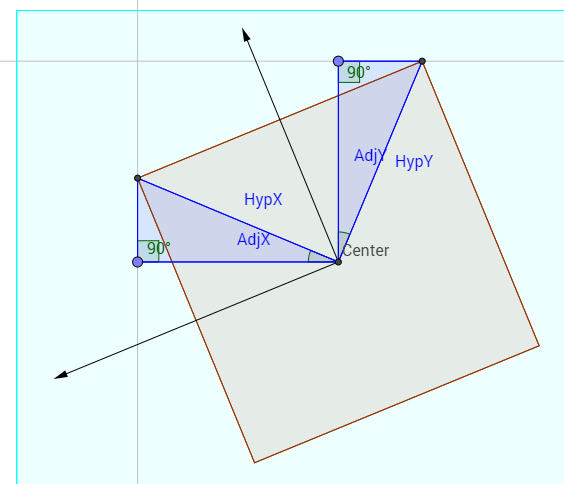Edit 14/03/2017: I’ve added the block contents of the two modules in another post, so you can finally compare which concepts you do or don’t have.
The question of which maths module to take is one that comes up a fair bit for students of the Open University, especially in STEM degrees. It comes up so often, in fact, that the OU has a site devoted to the question. For most people, this will mean choosing between MU123 (Discovering Mathematics) and the more difficult MST124 (Essential Mathematics I).
For some degrees, such as Maths, Physics, or Engineering degrees, the question is merely one of where you should start, as you’ll likely need to take and pass MST124 anyway at some point along your path. But for other degrees, you’re simply required to take a maths class, and which of the two you choose is completely up to you, with no effect on your degree or its classification.
As they’re Stage 1 modules, your pass level won’t affect classification. However, MU123 has a basic pass/fail structure, while MST124 allows the awarding of a distinction. I wouldn’t think this at all important, but someone pointed out that if they apply for a job while still on the degree course, it might be nice to say they passed all Stage 1 modules with a distinction.
I’ve mentioned earlier that I’m A) an immigrant, and B) a drop-out, so that makes deciding which maths to go into more difficult. I was in advanced maths when I dropped out of high school early. This would have meant I finished with the same amount of maths as non-advanced maths, but still beyond the compulsory amount required for all students. But I also skipped a year of maths before that, and had to self-teach some. So I’m left trying to match that up with “GCSE Maths” and “A-Level Maths” without anybody realising that the curriculum changes from time to time. It would be so much easier if they simply said which mathematical concepts you needed to be familiar and comfortable with.
When I took the practice quizzes at the above mentioned site, I breezed through the MU123 quiz. When I took the MST124 quiz, I did alright through the first half of the questions, but it was taking me forever to remember formulas and rules I haven’t used in twenty years. And the questions just felt tedious. And I figured I just didn’t need that in my life. So I didn’t even complete it.
Since it doesn’t make a difference to my degree, and it will be easier for me to get through and not burn me out, I was all set to simply take MU123 next year and never look back. Working in the industry for as long as I have, I’m fairly certain it won’t ever come up in my job.
That was, however, before I encountered the Hitbox.
On a great series of MOOCs that I’m doing, I’m currently coding some graphics programmes. In all of the practice programmes we’re assigned so far, it asks us to only concern ourselves with the center point of the image, and pretend that if the image wanders halfway off the side of the screen, that’s still within the boundary of the screen.
I wanted to do it a little more advanced. For instance, if the image is approaching the edge of a screen at a right angle, it can get as close as 1/2 the image size distance between the center-point and the screen boundary. Easy enough to code that
But what if it’s approaching the boundary at an angle? Now the corner of my image is further in the X or Y coordinate than half the image height or width. How do I figure that out?
Well, it’s simple trigonometry. As I mentioned the other week, I was self-taught in trig until last month, so I got a close look at a practical issue to see how well I understood it. Here’s how I sketched out my problem:

It’s clear to see that the closest I can get to the top edge on the Y axis is going to be the distance between the center of my image and the corner of the image (also calculated using simple trigonometry) multiplied by the cosine of the indicated angle. Cosine(y) = Adjacent Y/Hypotenuse Y, so Hypotenuse Y * Cosine(y) = Adjacent Y. Similarly, I need that same hypotenuse (all corners will be the same distance away from the center in a square or rectangular image) multiplied by Cosine(x) to determine how close I can get along the X axis.
So that’s all pretty basic-level maths. But it’s a very basic hitbox, too. What if I don’t want to pretend my images are rectangles? What if I’m having a scalene triangle interact with an irregular pentagon? (Adding a third dimension isn’t really all that different, you just have to increase the number of checks that are made and the calculations that represent edges.)
It’s still not that difficult to calculate hitboxes, as it becomes a series of intercepting slopes being greater than or less than line segment points. But the hitbox is just one tiny thing to calculate. And already my shortcomings in maths could have hampered a solution if I hadn’t prepared myself.
So I think I’m now edging toward MST124. To be clear, I don’t plan to go into programming, and though I’d love a proper Computer Science degree, this is as close as the Open University gets. But I would like to have as many bases covered as possible, and not regret that I should have had more maths under my belt when I come across something I hadn’t considered in the future. Besides, I did go back and finish the MST124 Are You Ready quiz, and it agrees that it’s a decent fit.